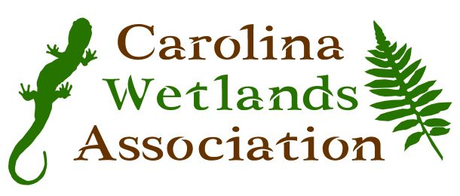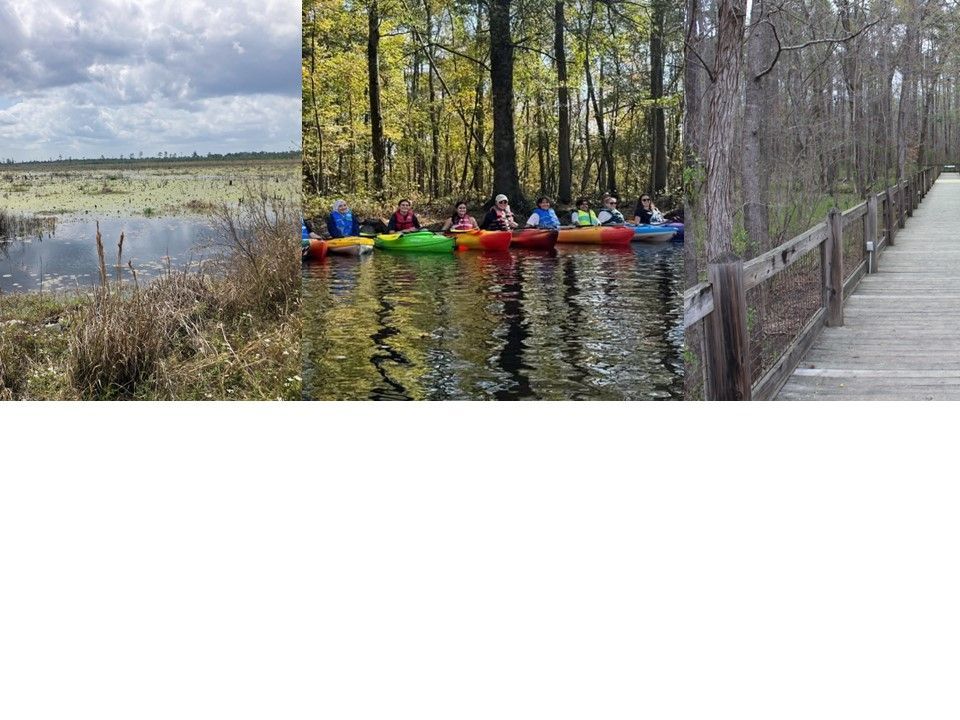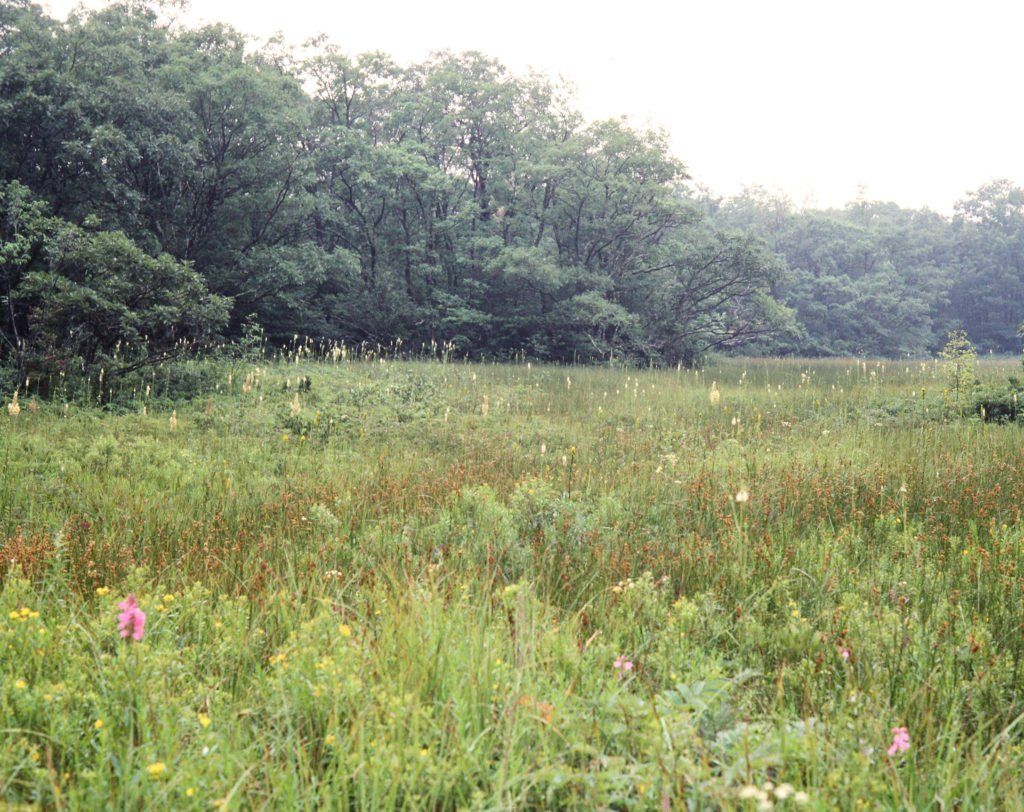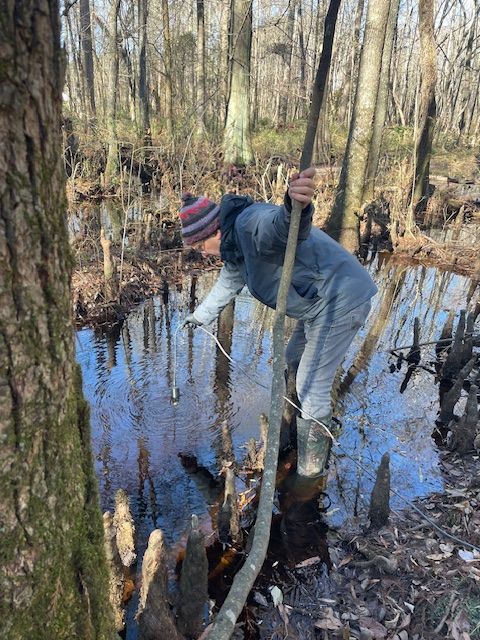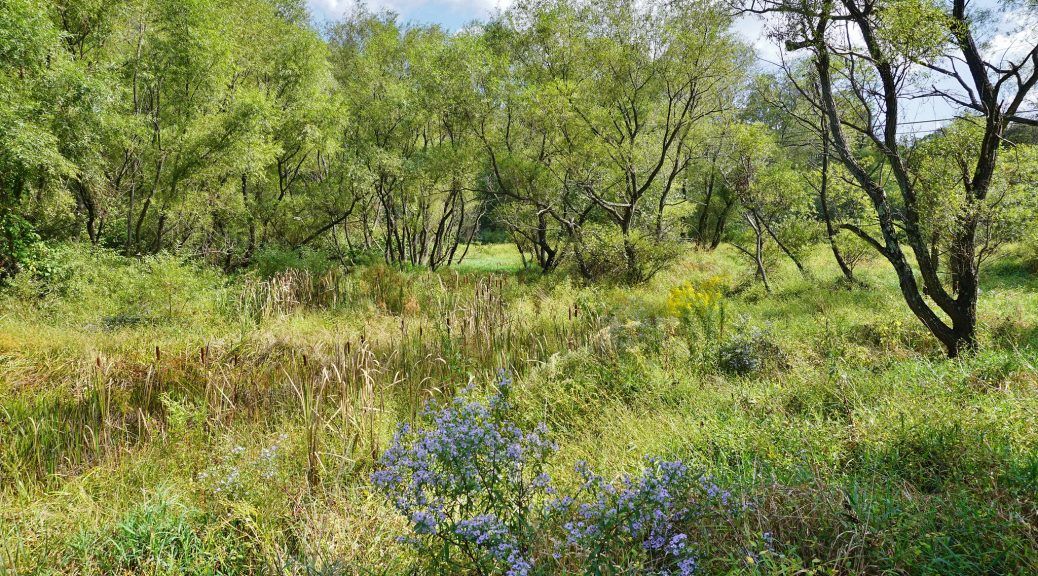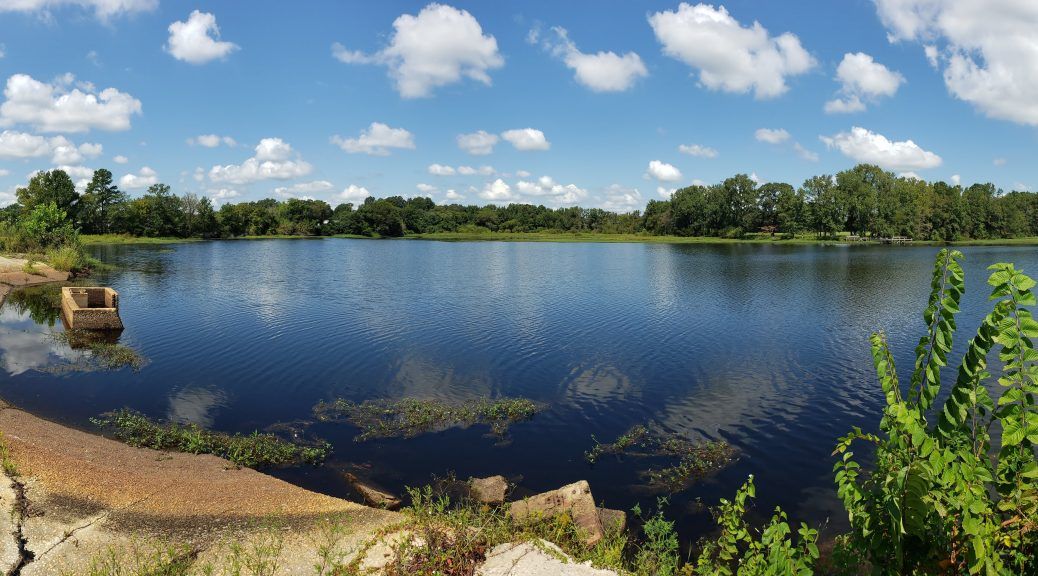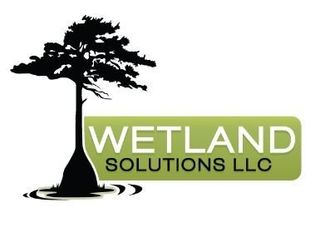A non-partisan, science- based organization advocating for wetlands in the Carolinas.
Recent News
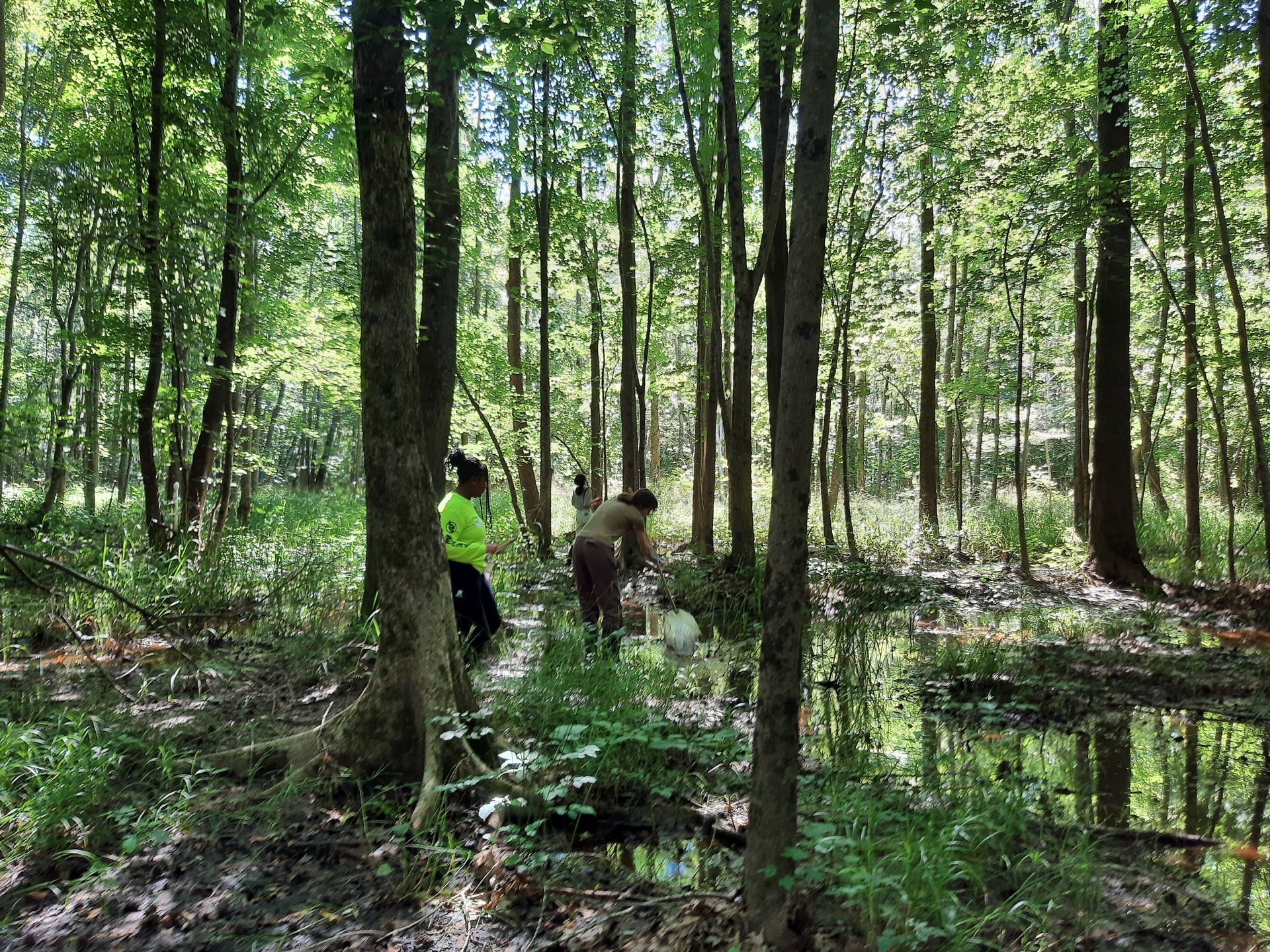
At this time of year, we focus on vegetation surveys along with hydrology and water quality. We have several reasons for this- for one, many of the plants we encounter still have mature leaves, are in bloom, or have fruited, which makes them much easier to identify. Our vegetation surveys can be somewhat intensive, depending on how many plants are located within the designated survey area. There’s lots of crawling around with plant books, lists, and photo taking to ensure we are capturing all of the species growing in the plot! We are very grateful for our plant-savvy volunteers who responded to our call for this monitoring season.

Dear Wetland Supporters: The Board of Directors provides guidance and oversite to the organization. Board members serve 3-year teams and every year one-third of the board changes. I thought it would be good hear hear from our outgoing and in coming Vice Presidents about their hopes for the organization. Heather Clarkson has been a board member since 2018 and served as the Vice-President for the past 3 year. Luckily for us, she is going to stay as a general board member for another term.

Greetings Wetland Supporters, I attended the National Association of Wetland Managers (NAWM) conference at the National Conservation and Training Center near Shepherdstown, WV. I have always said that this annual conference is one of the best to attend because of its relevance and timeliness to wetland professionals. There were really great presentations and you can see the agenda here . I was also invited to participate in a panel discussion on the Benefits of Regional, State, and Tribal Wetland Working Groups . I talked about our partnerships with stakeholders to help them find solutions to their flooding problems (e.g., Stony Run , Parkers Creek, Lumbee Cultural Center, the Gullah-Geechee), our partners with the Volunteer Wetlands Monitoring Program (NC State University, RTI International, and the Partners for Environmental Justice dealing with Walnut Creek. I also talked about our involvement in state initiatives including the (NC) Natural and Working Lands Initiative and the NC Salt Marsh Action Plan . Also on the panel was Tracy Hames, the Executive Director of the Wisconsin Wetlands Association , and he discussed a wetland workgroup that included state legislators, members from the governor’s office, realtors, homebuilders, wetland scientists, and members of the interested public. This group discusses wetland issues such as protection, given the Sackett case. And because of the diversity of the group, the Wisconsin legislature and governor passed legislation to provide greater protection for wetlands. I talked extensively with Tracy and Erin O’Brien (also of Wisconsin Wetlands Association) about this workgroup and how we might implement one in NC. So stay tuned. I had several good conversations and one in particular was with Molly Martin from EPA Region 4. She is very excited about our new Wetlands Program Development Grant to expand our Volunteer Wetlands Monitoring Program. Another good conversation was with Andy Robertson of Saint Mary’s University. He was estimating wetland protection loss for the state of New Mexico and he said that as much as 85% of the wetlands would lose their protection. Just remember the Carolina Wetlands Association is still working on ways to reverse the loss of wetland protection in the Carolinas. One thing you can do is write or call your state representatives and tell them we need to protect our wetland resources. And consider making a donation to help us continue the fight for our wetlands. So when exploring a wetland, think about what you can do to help make sure your wetland is protected. Rick Savage, Executive Director
Our work is organized into the following program areas
Outreach
Promoting widespread understanding of and engagement in wetlands.
Advocacy
Encouraging policies and programs that promote wetland conservation and protection.
Science
Encouraging the advancement of wetland science and practices.
Sustainability
Ensuring a long-term, viable organization to protect, promote, and restore wetlands.
